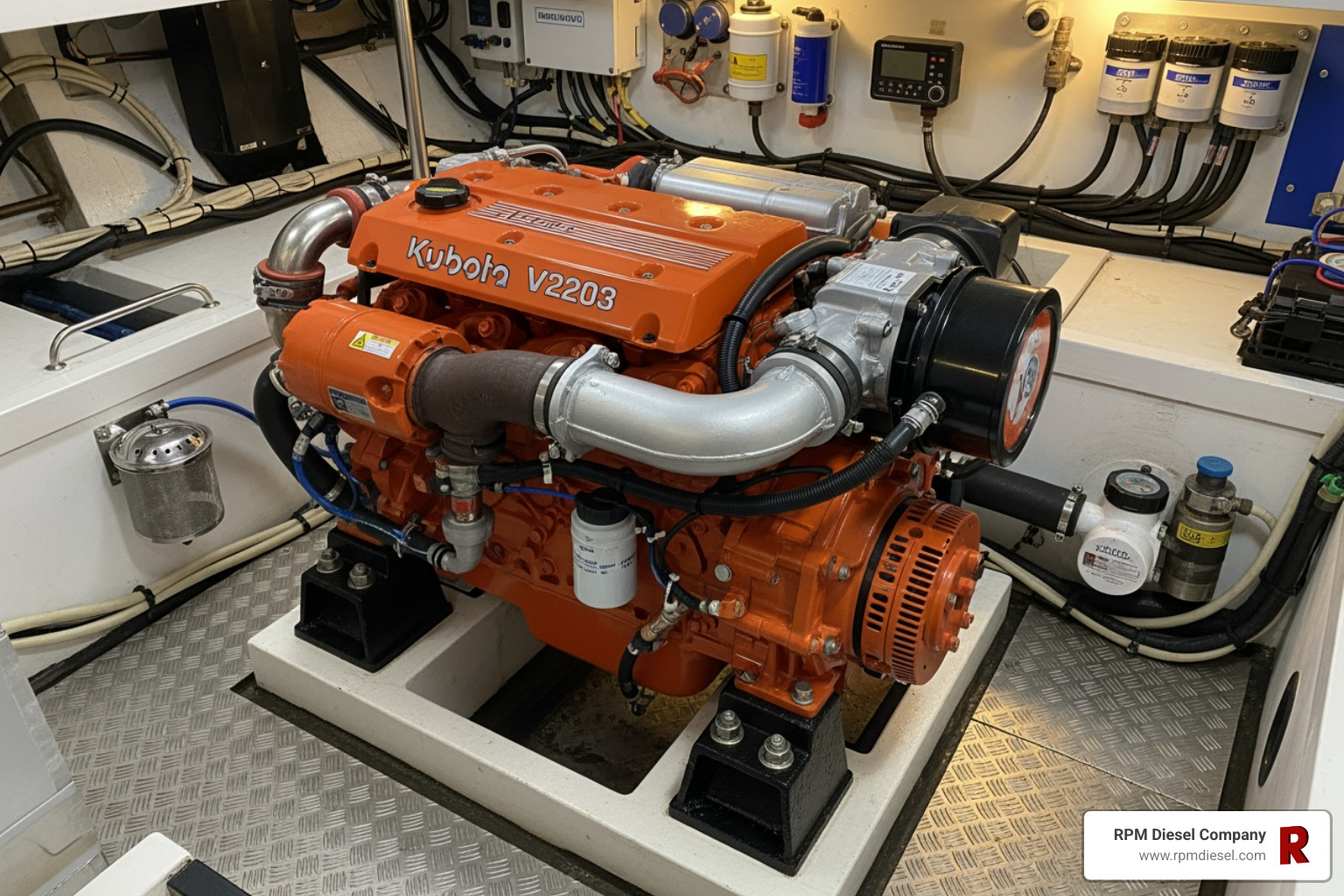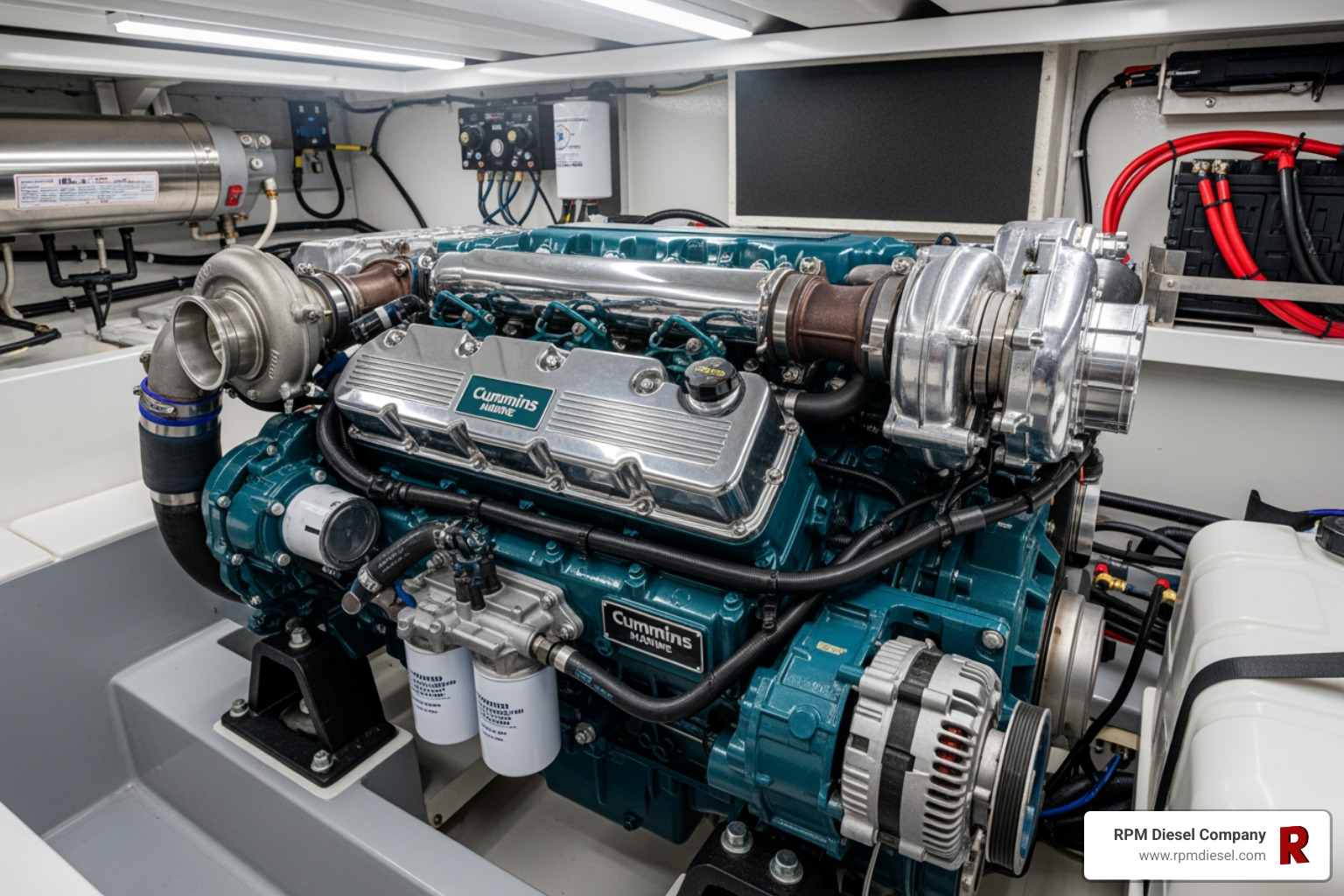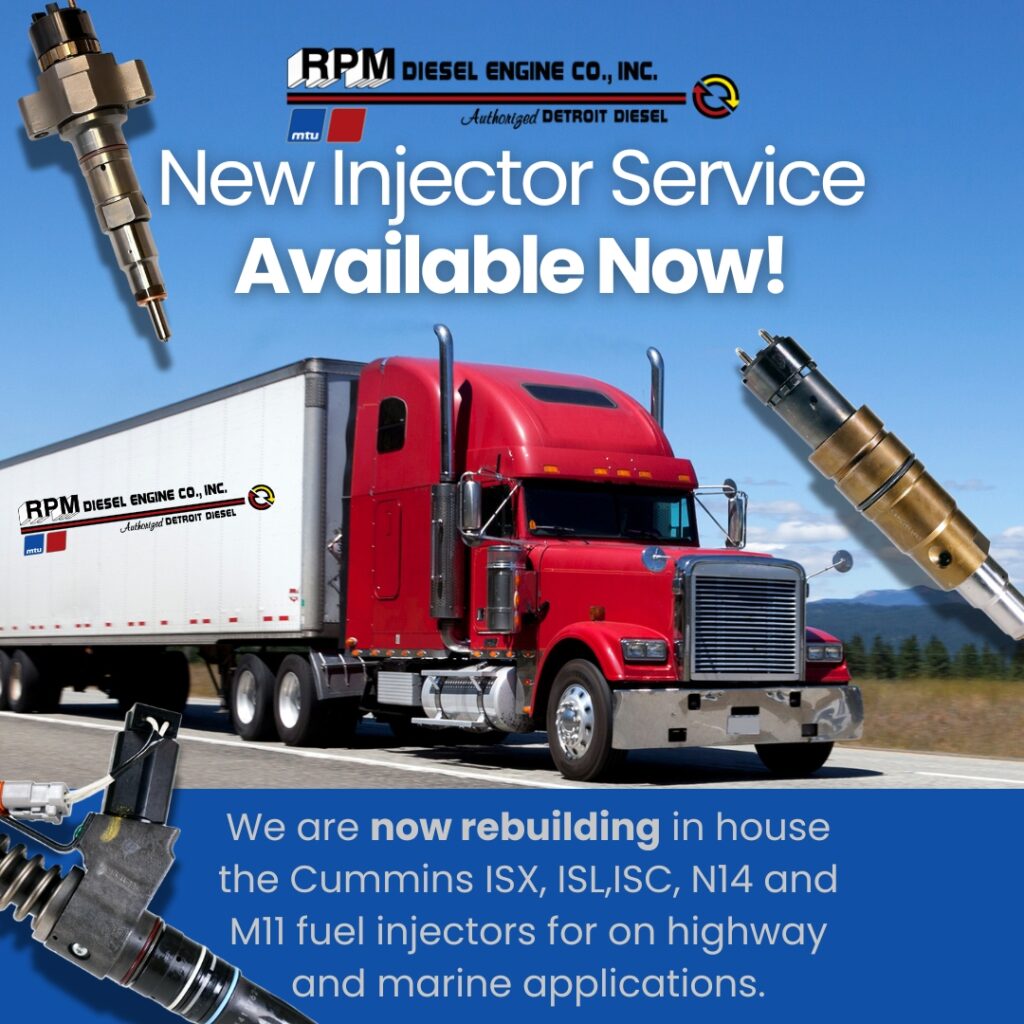Diesel engine troubleshooting guide is an essential resource for marine vessel owners who depend on the reliability and efficiency of diesel engines to navigate the open waters. This guide simplifies the process of maintaining your diesel engine in optimal condition, enhancing your sailing experience.
Quick reference: Common Diesel Engine Issues
– Overheating
– Oil leaks
– Clogged fuel injectors
– Contaminated fuel
Marine diesel engines are celebrated for their durability and fuel efficiency, serving as the backbone of watercraft worldwide. These engines convert diesel fuel into rotary mechanical energy through compression ignition, enabling ships to traverse the seas with impressive power and endurance. However, even these dependable systems can encounter challenges over time. Understanding potential issues before they escalate can keep your engine running smoothly and minimize downtime.
Consistent engine care is not just about performance—it’s a nod to sustainability. Ensuring your diesel engine runs efficiently helps reduce harmful emissions, contributing to the larger effort to protect our planet’s precious resources.
By exploring our comprehensive diesel engine troubleshooting guide, you can better prepare yourself to handle any issues that arise, ensuring you and your vessel are always ready for the next big trip.

Common Diesel Engine Problems
Marine diesel engines are the workhorses of the seas, but like any engine, they can encounter problems. Here’s a look at some common issues and what you can do about them.
Engine Overheating
Engine overheating is a top concern. It can cause severe damage to crucial components like the bearings, crankshaft, and cylinder heads.
Causes:
– Pushing the engine too hard.
– Faulty coolant system.
– Clogged diesel injectors.
Solutions:
– Ensure the cooling system is functional.
– Check for coolant leaks.
– Inspect the cooling fan and thermostat for faults.

Oil Leakages
Oil leaks are not just messy—they’re dangerous. Leaks often stem from aged seals and gaskets.
Risks:
– Environmental hazards.
– Fire risks.
– Complete engine failure if ignored.
Solutions:
– Regularly inspect and replace worn seals and gaskets.
– Ensure proper oil levels and types are used.
Oil Supply Problems
Oil is the lifeblood of your engine. Without it, the engine can seize up.
Common Issues:
– Incorrect oil type.
– Lack of oil.
Prevention:
– Use the right oil type for your engine.
– Regularly check and maintain oil levels.
Using the Wrong Fuel
Using the wrong fuel can be catastrophic for diesel engines.
Consequences:
– Engine damage.
– Need for costly repairs or replacements.
Prevention:
– Double-check fuel type before refueling.
– Educate all crew members about the correct fuel type.

By understanding these common problems, marine vessel owners can take proactive steps to prevent issues before they escalate. This not only ensures smoother sailing but also contributes to a more sustainable and environmentally friendly operation.
Dive deeper into our diesel engine troubleshooting guide to equip yourself with the knowledge needed to tackle these challenges head-on.
Diagnosing Diesel Engine Issues
When your marine diesel engine acts up, knowing how to diagnose the problem can save you time and money. Here’s how you can get started:
Visual Inspection
Start with a visual inspection. Look for obvious signs of trouble, like leaks, corrosion, or damaged parts. Check for loose connections or worn-out hoses. This simple step can often pinpoint issues that need immediate attention.
Fuel System Check
The fuel system is critical for engine performance. Issues like clogged filters or faulty injectors can lead to poor efficiency and performance. Conduct a thorough check by:
- Inspecting fuel filters for clogs.
- Checking injectors for proper function.
- Ensuring there are no leaks or damage to fuel lines.
High-quality fuel and regular maintenance can prevent many fuel system problems.
Air System Check
A clean air supply is essential for combustion. An air system check involves:
- Examining air filters for dirt or blockages.
- Checking for cracks or leaks in the air supply lines.
A blocked air system can lead to reduced engine performance and increased emissions.
Compression Test
A compression test helps assess the health of your engine’s cylinders. Low compression can mean worn piston rings or damaged valves. A good compression reading for a diesel engine is typically between 300 and 500 PSI. Anything below this range indicates potential engine issues.
Electrical Problems
The electrical system includes batteries, alternators, and wiring. Problems here can cause starting issues or intermittent engine performance. Use a multimeter to:
- Test battery voltage.
- Check alternator output.
- Inspect wiring for corrosion or damage.
Ensure all connections are secure and components are functioning correctly.
By following these steps, you can accurately diagnose most common issues with marine diesel engines. This proactive approach not only keeps your engine in top shape but also helps avoid costly repairs. For more detailed troubleshooting, explore our comprehensive diesel engine troubleshooting guide.
Diesel Engine Troubleshooting Guide
When it comes to marine diesel engines, understanding the common systems and their issues is key. Our diesel engine troubleshooting guide will walk you through the essentials, helping you keep your vessel running smoothly.
Fuel System
The fuel system is the lifeblood of your diesel engine. Common problems like clogged fuel filters and faulty injectors can wreak havoc on performance. Signs of trouble include:
- Engine hesitation or rough idling
- Poor fuel efficiency
To troubleshoot, start by replacing clogged fuel filters and cleaning or replacing faulty injectors. Regularly inspect fuel lines for leaks or damage, and always use high-quality fuel to prevent contamination.
Electrical System
The electrical system powers vital engine components. Problems can arise from faulty batteries, alternators, or corroded wiring. Look out for:
- Starting issues
- Intermittent performance
Diagnose issues by testing battery voltage and alternator output with a multimeter. Check wiring for corrosion or damage, and replace faulty components like glow plugs or batteries. Secure all electrical connections to ensure reliability.
Cooling System
Your engine’s cooling system prevents overheating, which can lead to severe damage. Common issues include coolant leaks and faulty thermostats. Symptoms to watch for:
- Engine overheating
- Coolant leaks
Address leaks promptly and replace faulty thermostats or water pumps as needed. Regularly flush the cooling system and use high-quality coolant to maintain optimal performance.
Emissions Control
Emissions control systems are crucial for reducing pollutants. Problems here can lead to increased emissions and reduced performance. Keep an eye on:
- Excessive smoke emissions
- Engine performance issues
Regularly inspect components like EGR valves and diesel particulate filters for clogs or damage. Conduct emissions testing to ensure compliance and identify any underlying issues.
By understanding these core systems and their common problems, you can effectively troubleshoot and maintain your marine diesel engine. For more detailed solutions, continue exploring our comprehensive guide.
Solutions to Diesel Engine Problems
When your marine diesel engine encounters issues, timely and effective solutions are crucial. Let’s explore some practical steps you can take to keep your engine in top shape.
Replace Filters
Filters play a vital role in keeping your engine clean and efficient. Over time, fuel and oil filters can become clogged with debris, leading to poor performance or even engine failure.
-
Regular Replacement: Make it a habit to replace fuel and oil filters as part of your routine maintenance. This simple step can prevent larger problems down the road.
-
Signs of Clogging: If you notice reduced engine power or increased fuel consumption, it might be time to check those filters.
Clean Injectors
Fuel injectors are responsible for delivering fuel into the engine cylinders. Dirty or clogged injectors can disrupt this process, causing rough idling or misfires.
-
Cleaning Routine: Use a fuel injector cleaner periodically to remove any buildup. If problems persist, professional cleaning or replacement might be necessary.
-
Watch for Symptoms: Look out for symptoms like jerky acceleration or difficulty starting, which can indicate injector issues.
Repair Leaks
Leaks in any part of your marine diesel engine can lead to significant problems, from coolant loss to oil leaks.
-
Identify and Fix: Regularly inspect your engine for any signs of leaks. If you spot a leak, address it immediately to prevent further damage. This might involve tightening connections or replacing gaskets.
-
Common Leak Areas: Pay special attention to areas around the fuel lines, hoses, and seals.
Replace Faulty Components
Sometimes, parts of your engine simply wear out and need replacing. Faulty components like alternators, glow plugs, or water pumps can cause a range of issues.
-
Regular Inspections: Conduct regular checks on key components. If you find any parts that are worn or damaged, replace them promptly to avoid more extensive repairs.
-
Use Quality Parts: Always opt for high-quality replacement parts to ensure longevity and reliability of your engine.
By addressing these common problems with targeted solutions, you can extend the life of your marine diesel engine and ensure it runs smoothly. Regular maintenance is your best defense against unexpected breakdowns, so stay proactive with these solutions.
Continue to the next section to explore frequently asked questions about diesel engines and gain more insights into maintaining your marine engine effectively.
Frequently Asked Questions about Diesel Engines
Navigating issues with your marine diesel engine can be tricky. Here, we address some common questions to help you troubleshoot and maintain your engine effectively.
What is the most common problem in diesel engines?
Engine Overheating: This is a top concern for diesel engines. Overheating can damage bearings, crankshaft, and other components. Causes include a faulty cooling system, coolant leaks, or a bad thermostat. Regularly check your cooling system to prevent overheating.
Bearings Damage: Bearings endure a lot of stress and can fail due to insufficient lubrication. Keep an eye out for unusual noises or decreased engine performance, which may signal bearing issues.
Crankshaft Issues: The crankshaft is crucial for converting linear piston motion into rotational motion. Problems often arise from wear and tear or lubrication issues. Regular maintenance and inspections can help catch these issues early.
How to diagnose a diesel engine?
Visual Inspection: Start by visually inspecting the engine. Look for leaks, corrosion, or damaged parts. This can often give clues about the problem.
Diagnostic Tools: Use tools like diagnostic scanners to read error codes from the engine’s control unit. This can pinpoint specific issues quickly.
Compression Test: A compression test checks the engine’s ability to compress air in each cylinder. Low compression can indicate problems like worn piston rings or cylinder head issues.
Why is my diesel turning over but not starting?
Fuel System Problem: If your engine turns over but won’t start, the fuel system might be the culprit. Check for clogged fuel filters, faulty injectors, or air in the fuel lines.
Lack of Compression: Without proper compression, the engine can’t start. Conduct a compression test to identify any issues with the pistons or cylinder head.
Cranking Speed: The engine needs to crank at a sufficient speed to start. A weak battery or faulty starter motor can slow cranking speed, preventing the engine from starting.
Understanding these common issues and their solutions can help you maintain your marine diesel engine more effectively. For more detailed guidance, consider consulting a professional or referring to our comprehensive diesel engine troubleshooting guide.
Conclusion
At RPM Diesel Company, we pride ourselves on our marine engine expertise and comprehensive service offerings. With over 60 years of experience, we’re your go-to specialists for all things related to diesel engines in the marine industry. Our team is dedicated to ensuring your vessel runs smoothly and efficiently, whether you’re navigating the open seas or cruising along the coast.
Our comprehensive services include everything from routine maintenance to complex engine overhauls. We understand the unique challenges marine diesel engines face and offer custom solutions to keep them performing at their best. Our extensive inventory of hard-to-find parts and our factory-authorized status with major manufacturers like Detroit Diesel and MTU set us apart in the industry.
Whether you’re dealing with engine overheating, fuel system issues, or any other diesel engine problem, our team is here to help. We offer on-site services worldwide, ensuring that no matter where you are, you can count on us for reliable support.
For more information on how we can assist you with your diesel engine needs, visit our diesel generator repair page. Let us help you keep your marine engines in top condition, so you can focus on what matters most—enjoying your time on the water.






